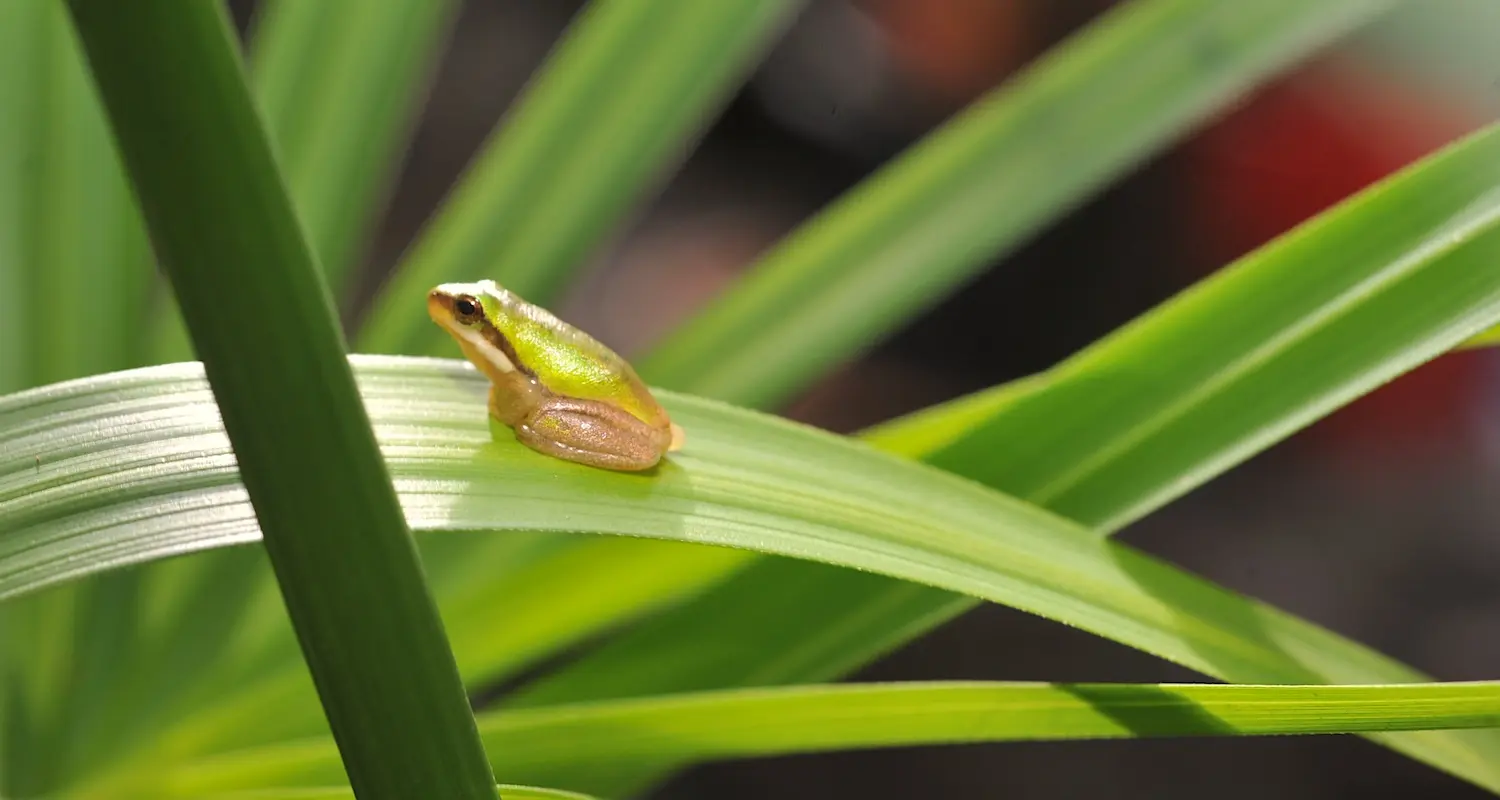Frogs play a vital role in our ecosystem, serving as important indicators of environmental health. In this blog post, we will delve into the enchanting world of frogs in Gambia, exploring some of the unique species found in this vibrant country.
Biodiversity Hotspot
Gambia is a biodiversity hotspot, home to a remarkable variety of flora and fauna. This diversity extends to its frog population, with over 30 different species inhabiting the country.
Frogs And Toads of The Gambia
Frogs
Brown running frog – Double banded running frog – Senegal running frog – Western reed frog – Spatz’s reed frog – Banded banana frog – Weidholz’s banana frog – Four lined spiny reed frog – Pyjama shiny reed frog – Shovel nosed frog – Savannah forest tree frog – Rusty forest tree frog – West african rubber frog – Tropical clawed frog – Gallam white lipped frog – Crowned bullfrog – Edible bullfrog – Dakar grassland frog – Schilluk ridged frog – Sharp nosed ridged frog – Ptychadena tournieri – Medine Grassland Frog – Broad banded grass frog – Ornate frog – Ahl’s river frog – Phrynobatrachus francisci – Natal Puddle Frog .
Toads
Pentons toad – Hallowell’s toad – Egyption toad – Subdesert toad –
Habitat and Adaptations
The frogs in Gambia can be found in various habitats, including forests, wetlands, grasslands and our eco-pool at Footsteps 😉. Each species has its own unique adaptations that allow it to thrive in its specific environment. For instance, the African Bullfrog possesses powerful hind legs that enable it to make impressive leaps, while the Savannah Tree frog has adhesive toe pads that allow it to climb trees with ease.
Breeding Habits
One of the most fascinating aspects of frogs is their breeding behaviour. Many frog species in Gambia rely on freshwater habitats, such as ponds and streams, for reproduction. After rainy periods, these habitats become bustling breeding grounds for frogs. Male frogs can be heard croaking loudly to attract females, creating a symphony of nature’s music.
Endangered Species
Sadly, like many amphibians around the world, some frog species in Gambia are faced with the threat of extinction. Factors such as habitat destruction, pollution, and climate change pose significant risks to their survival. Conservation efforts are crucial to protect their habitats and raise awareness about the importance of preserving these remarkable creatures for future generations.
Ecotourism and Frog Watching
Gambia’s unique frog species offer a fantastic opportunity for eco-enthusiasts and nature lovers to engage in frog watching. Ecotourism initiatives have gained popularity in recent years, offering guided tours and educational programs that allow visitors to observe and learn about these fascinating creatures in their natural habitats. This not only promotes environmental awareness but also contributes to the local economy and conservation efforts. Just after the rainy season ends there is a wonderful chorus to be heard at Footsteps.
Embracing a Future Together
The enchanting world of frogs in Gambia serves as a reminder of the fragile balance of ecosystems and the importance of conservation efforts. By raising awareness, supporting local initiatives, and embracing sustainable practices, we can ensure the survival of these mesmerising creatures for generations to come.

Conclusion
Gambia’s frog species are an integral part of the country’s rich biodiversity. From their stunning colors and unique adaptations to their crucial role as environmental indicators, frogs are truly enchanting creatures. By appreciating and protecting the frogs of Gambia, we can contribute to the preservation of this fragile ecosystem and celebrate the wonders of nature.
So, next time you visit Gambia, take a moment to explore our eco-pool reed beds as well as other vibrant frog habitats and immerse yourself in the captivating world of these amazing amphibians.
Remember, they are not just frogs, but ambassadors of a thriving ecosystem.
